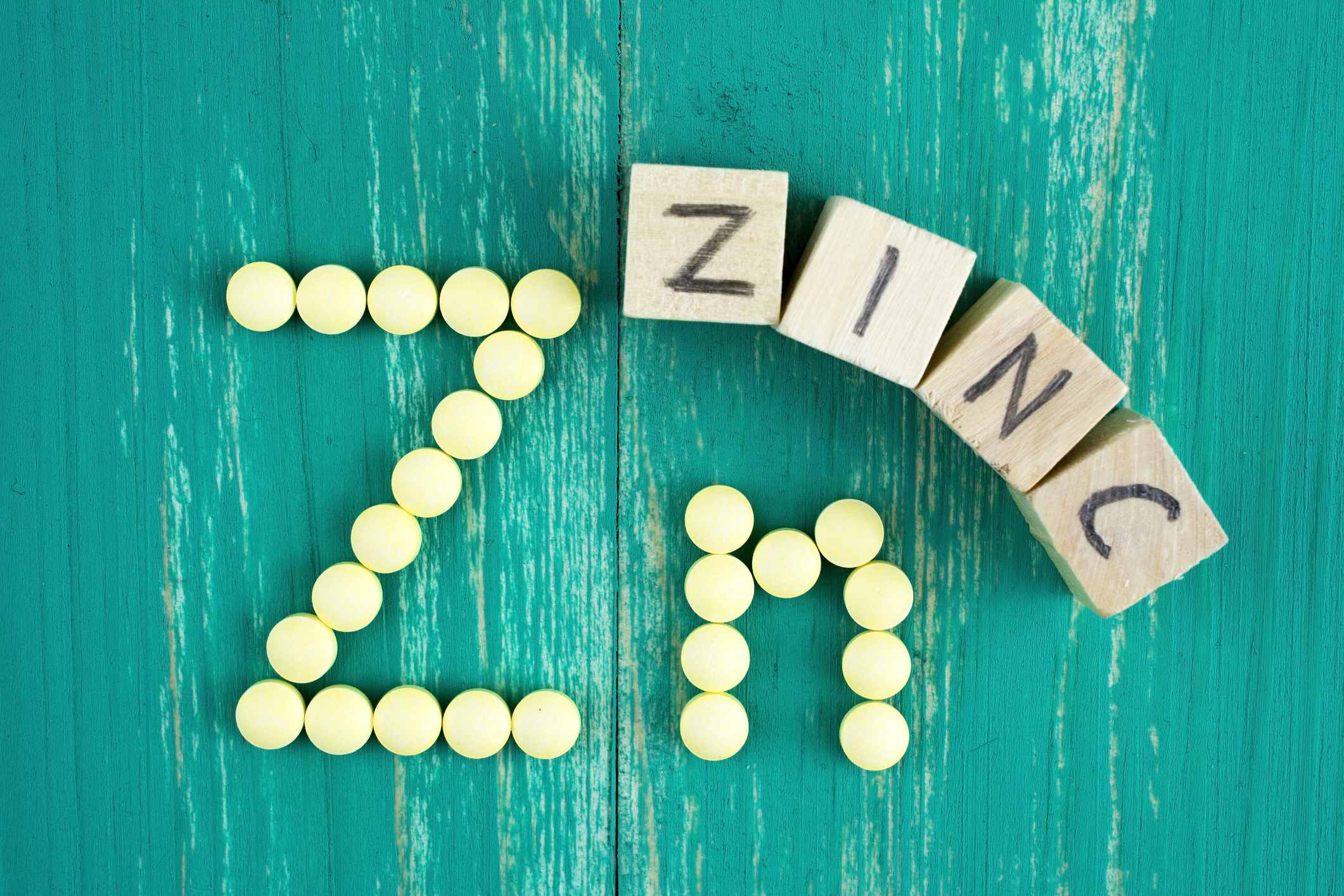Get Easy Health Digest™ in your inbox and don’t miss a thing when you subscribe today. Plus, get the free bonus report, Mother Nature’s Tips, Tricks and Remedies for Cholesterol, Blood Pressure & Blood Sugar as my way of saying welcome to the community!
Can zinc lower blood pressure?

The number one modifiable risk factor for heart disease and premature death worldwide is high blood pressure.
This means that while having out of control blood pressure puts you at high risk for heart problems, including heart attack and stroke, it’s also a factor that can be controlled to lower your risk.
And while you may have already heard numerous recommendations on how to do that, like cutting back on salt and getting your exercise, there’s a brand new one that was just discovered. And it may be the easiest path to better blood pressure ever discovered.
Minerals and your blood pressure
According to scientists, one of the keys to improving blood pressure is understanding the importance of minerals in how the cells in your arteries and blood vessels work.
You see, each and every one of your body’s functions depend on the ability of your arteries to channel oxygen-rich blood to where it’s needed. And to complete this process, it’s vital that the smooth muscle cells within these vessels work to direct how fast or slow the blood gets to each destination.
As this smooth muscle contracts, your arteries narrow and your blood pressure goes up. Then as the muscle relaxes, your artery expands and your blood pressure drops.
Studies going back over six decades have proven that the levels of two minerals — calcium and potassium — in the muscle surrounding your blood vessels control how they expand and contract.
Here’s how it works…
While potassium regulates calcium in the smooth muscle, the calcium itself is responsible for causing the narrowing of the arteries and veins that elevate blood pressure and restrict blood flow.
To top it off, other cells that surround the blood vessel, including endothelial cells and sensory nerves, also regulate the calcium and potassium within the muscle of the artery. And in turn, they’re actually regulated by the levels of these minerals.
It’s a system that works as a loop.
An underappreciated mineral that relaxes blood vessels
However, while the importance of potassium and calcium for blood pressure is well-established, there’s another mineral that has up until now been underappreciated in the process — zinc.
But that’s all changed thanks to a new study published in Nature Communications.
Funny thing is, the study wasn’t actually looking for a way to improve blood pressure at all…
“Our discovery that zinc is also important was serendipitous because we’d been researching the brain, not blood pressure,” said lead author Ashenafi Betrie, Ph.D., of the Florey Institute of Neuroscience and Mental Health and The University of Melbourne in Australia.
“We were investigating the impact of zinc-based drugs on brain function in Alzheimer’s disease when we noticed a pronounced and unexpected decrease in blood pressure in mouse models treated with the drugs.”
But while they were looking for a way to improve brain function with zinc, what they found was the fact that zinc coordinates action within sensory nerves, endothelial cells and the muscle of arteries.
This triggers lower calcium levels in the muscle of the blood vessel, making the vessel relax, decreasing blood pressure and increasing blood flow.
According to the team, zinc essentially has the opposite effect of calcium on blood flow and pressure.
How to get your zinc
Previous studies have shown that people with lower zinc levels are more likely to be hypertensive, so now we are getting closer to understanding why.
So, if you want better blood pressure, it’s time to make sure you’re getting enough zinc.
First, start by taking this at-home test for zinc deficiency.
Next, consider adding in a zinc supplement daily or adding more zinc-rich foods to your diet, like shellfish, legumes, dairy and eggs.
The Mayo Clinic recommends a daily amount of zinc equal to 8 milligrams (mg) for women and 11 mg for adult men. They also suggest that if you supplement zinc, don’t take it with copper, iron or phosphorus supplements at the same time. Space them 2 hours apart to get the full benefit from each dietary supplement.
A great bonus of increasing your zinc levels beyond reducing your blood pressure could be powerful virus protection — since low levels of zinc have been linked to a higher risk of death from Covid-19.
Editor’s note: Have you heard of EDTA chelation therapy? It was developed originally to remove lead and other contaminants, including heavy metals, from the body. Its uses now run the gamut from varicose veins to circulation. Click here to discover Chelation: Natural Miracle for Protecting Your Heart and Enhancing Your Health!
Sources:
Unexpected discovery opens a new way to regulate blood pressure — EurekAlert!













